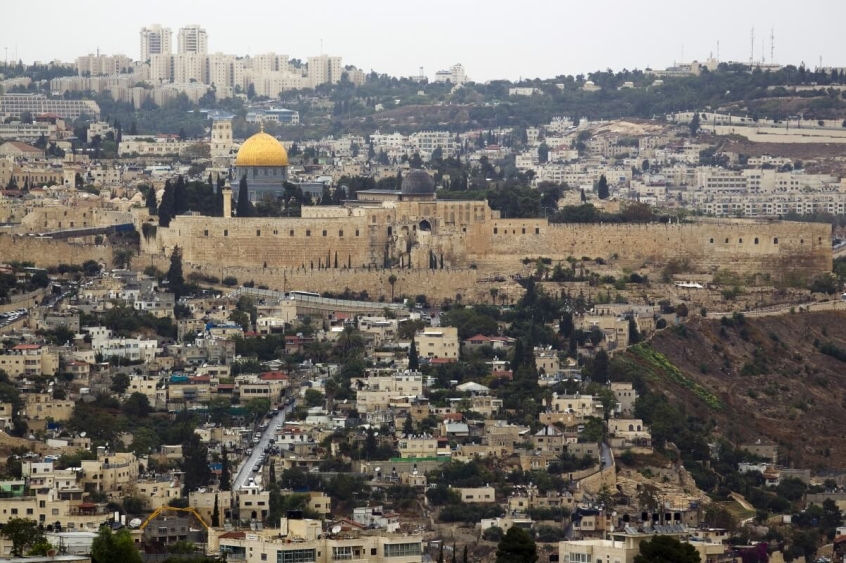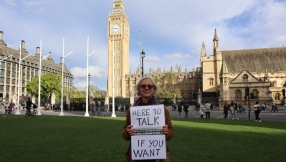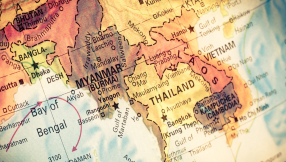There are those who claim that acknowledging Jerusalem as the capital of Israel may not affect the daily life of its residents because Israel already controls the city and has been changing its demography and boundaries for over 50 years.
In spite of the fact the Jerusalem municipality is responsible for both East and West Jerusalem, in reality Jerusalem has remained divided, whether by ethnicity (Jewish or Arab) in some neighborhoods, or a separation wall in others.

All this said, President Trump's recent announcement left me with a heavy heart as I contemplated the implications of his proclamation.
Many Palestinians have struggled and altered their lives to keep their Jerusalem residency over the years. Many of my own friends have to deal with Israeli bureaucracy to maintain or regain their residency simply because they are Christians or Muslims born in Jerusalem. To Israel, they pose a demographic threat to maintain Jerusalem's Jewish majority, and therefore, many Palestinians in Jerusalem find themselves residents at best and stateless at worst.
During the past few years Jerusalem has had its share of violence with many casualties, many of whom have been under the age of 23. This has led to tight security checkpoints, not permanent but frequent, primarily at entrances to Palestinian neighbourhoods in and around Jerusalem. This limits the neighbourhood to having one entrance and exit. Going to work or school takes twice, if not three times, as long as the commutes from Jewish neighbourhoods.
As someone who has lived in the Old City for many years, I have encountered, how the Holy City becomes restricted to certain religious groups simply so that others can move freely, especially during religious holidays and political tensions. Even during Muslim holidays, young men are restricted from entering the Old City and only women, children and elderly men are permitted. This restriction is not imposed on Christians or Jews during their holidays and national celebrations, even when some of the Jewish national celebrations are purposefully and clearly inflammatory and provocative as they triumphantly march through Palestinian areas – for example each year during the annual Jerusalem Day celebration, marking the anniversary of Israel's success in capturing East Jerusalem from Jordan.
Palestinian house demolitions have increased in Jerusalem while Israel confiscates Palestinian land for Israeli settlers to expand and encroach on Palestinian neighbourhoods. You have only to visit the City of David to see this prominently displayed, with islands of settlers who have relocated to a Palestinian neighborhood to proclaim their national and religious history at the expense of the majority who have lived for generations there.
How can we understand all of these prolonged injustices when it comes to US support acknowledging Jerusalem as the capital of Israel?
President Trump, supposedly the leader of the free world and advocate of democracy, supports and even rewards Israel's undemocratic policies and behaviour favouring one people group over the other in Jerusalem. This inherent contradiction is prominent for Palestinians, for what is freedom and democracy when its leader further undermines both of these elements for 40 per cent of Jerusalem's population?
As a Christian Palestinian, I feel that same contradiction exists when I see the policies advocated by many American Christians. As Christians, we should help those with residency issues and those whose homes are threatened by demolitions, and mobilise our voices to restore their rights as Jerusalemites and as human beings created in God's image. Theological perspectives which support an end of days eschatology that is predicated on US recognition of Jerusalem as Israel's capital, or blanket support for the Israeli government regardless of the injustice it imposes on a substantial minority of Jerusalem residents, fail to make sense to me.How can Christians, Christ-followers, support injustice and occupation when Jesus did the opposite, speaking for the voiceless and the marginalised?
During this Advent season, I ask myself and my fellow Christian brethren worldwide, how should we respond? What is an appropriate response in this situation, for me as a local and for many of you living outside the Holy Land? I think of the shepherds who came from nearby and the Magi who came from a faraway land, seeking the new king Jesus. While the Magi had power, status and wealth, they did not find the new king in a place one would have expected.
This Christmas, perhaps we need to look inward, because the place we may find our king is not in the halls of power, or at the seat of an imperial outpost like Herod, but living precariously under occupation. This is the case of Palestinian Christians today, who see themselves as the fifth gospel, the living testimony of Christ's message in a world dark with evil and injustice. How can international Christians live in this fifth gospel with us, proclaiming God's goodness and subversive message of powerlessness confounding the powerful?
This is the challenge posed to us during Trump's proclamation of neo-colonial sanction for the Israeli occupation's acts in Jerusalem. Then, as now, Jesus won't be found among the powerful and privileged, but the poor and oppressed. And what will the Christian world's response be? Will you seek him in the halls of Herod? Jesus has a message for both oppressors and oppressed, but you won't find him among the oppressors. Will the Christian world stand with their Christian brethren this Christmas?
I'm not sure, but as a Palestinian Christian, I invite you to stand with us as we bear witness to the message of that first Christmas, that God incarnate has come to dwell among us with a message of hope and peace, and that message is not meek and mild but challenges the powers where justice has come to the world and all that is wrong needs to be made right.
Shadia Qubti is a Palestinian Christian born and raised in Nazareth, and currently living and working in Jerusalem. These are her personal views.









